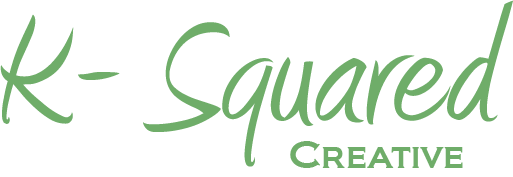2018 Sucked – The Internet Said So
I’m sure you’ve noticed the memes. The last few years in December the internet has buzzed with how bad the current year was and how great it will be to leave it all behind and move on with the next year. 2018 HAD to be better than 2017, right? [Narrator’s voice: “HAH!”] It can be really easy to absorb these feelings and say, “Yes [insert year here] was terrible! Absolutely nothing good happened!”
But is that true? Likely not.
I’ll be the first to admit that 2018 was rough. Professionally, there were a lot of challenges. Stress, frustration, constant change. Non-existent work/life balance for months at a time. You get the picture. It would be easy to say that 2018 was terrible. But surely it wasn’t ALL terrible.
Advice from a Stormtrooper
I was desperately trying to catch up on a backlog of saved podcast episodes while tinkering on side projects during my vacation the last few days. On one episode of the ID10T podcast, Chris Hardwick interviewed John Boyega (March 20, 2018 – I told you I was behind!)
One thing that struck me from this conversation was the concept of focusing on the right part of a sentence instead of the wrong part of a sentence. Basically, if someone tells Boyega “You were the worst character in the new Star Wars movie,” Boyega chooses to focus on the part of the sentence that says he was IN the new Star Wars movie. He ignores the negative.
This reminded me of the “all or nothing” approach to cataloging a year’s worth of experiences as good or bad. These internet memes all encourage us to focus on the negative aspects of a year. What if we flipped that? Sure, we can learn from the negatives and allow them to shape us, but we can’t let them DEFINE us. We need to focus on the positives.
Time to Get Reflective
There’s one easy way I know of to force yourself to focus on the positives: the Personal Annual Report.
This is something I’ve done every year in December for a few years now. I always find it a nice way to recap the year, recharge, and prepare for what’s ahead. It’s a way to reminisce about all the things – big and small, good and bad – that happened over the last twelve months. It really is amazing how many great experiences you can forget about over the course of a year! I also use this as a way to track accomplishments, which is useful when updating a portfolio.
This process is a little different than the self-reflection review for an annual review required by my workplace. In that case I’m answering specific questions to help guide discussion with my supervisor. (Basically, we are checking boxes to keep HR happy.)
This December review is also different from the personal planning retreat I’ve written about before. Retreats, to me, are more about being proactive, setting goals, and getting organized.
Personal Annual Reports are meant to be much more reflective. The goal is to look back on the previous year, chart accomplishments, consider what I can improve on for the next year, and set my goals or resolutions. They’re comparable to an end-of-year report a non-profit or business might put out to their stakeholders. In this case, YOU are your own stakeholder.
Creating Your Report
What you’ll need:
- Calendar(s), bullet journals, etc. – Whatever you’ve used to track both personal and professional appointments, notes, etc.
- Paper, a diary/journal, or your computer – Whatever you’re using to write up your annual report
- Mug of coffee, cocoa, whatever you want – This is supposed to be an enjoyable activity so you should treat yourself.
- At least an hour of uninterrupted time to complete the process – It’s just an hour. You know you deserve it.
The process:
- Create your headers. Either add them to a document on your computer or write one at the top of each page of your paper or journal. These headers can (and should) be customized to your own individual needs. See below for some suggestions.
- Make your lists. Go through your calendars, notebooks, etc., to jog your memory of all that you did this year. Add relevant items to your lists under the appropriate headers.
- Reflect on your goals for next year. What went well? What do you want to change? Once you’ve done this before, you’ll be able to look back at the previous year’s goals and hold yourself accountable.
Sample Report Headers:
- Professional wins & goals achieved
- Personal wins & goals achieved
- Creative achievements
- Fitness achievements
- Bucket List items checked
- Skills acquired
- New concepts learned
- New responsibilities
- Side projects
- Home improvements completed
- Notable events (both good and bad – log the big things that happened in your life)
- Lessons learned
- Professional goals for next year
- Personal goals for next year
Survey Says…
As rough as 2018 seemed going in to this process, after just an hour of looking over my calendars and notes I’m reminded of all the great things that also happened. Whether it was the small activities (like wine nights or grabbing sushi with friends) or the bigger events (seeing my first show on Broadway, traveling to Chicago and Nashville, finally painting my upstairs hallway), there was a lot of good and a lot of accomplishments that I can be proud of this year.
And in the interest of self-accountability, looking back at previous years I’ve learned that for three years running I’ve set a goal of organizing my digital files and photos. So maybe 2019 will be the year I can finally add that to my Personal Achievements section and be done with it.
